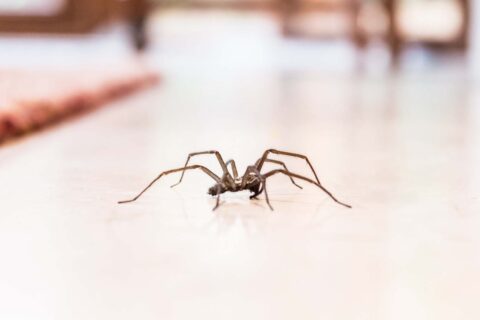Moth Larvae
Moths flying around your home or business can be a nuisance, but the adults don’t actually cause any damage. However, these insects are often the first sign of a larger issue. Pantry and clothes moth larvae are the main source of infestation issues. Depending on which type you have, you may end up with ruined fabrics or food.
Identifying Moth Larvae
The two most common moth species in the Illinois and Wisconsin areas are clothes moths and Indian meal moths. These pests look similar at the larval stage. The off-white caterpillars have brown heads and grow to about a half-inch in length before pupating. Both leave silk webbing in areas where they feed.
Damage Caused
Pantry Moth Larvae
Pantry moth larvae prefer to eat and breed in pet food, dry grains, and cereals. These pests typically infest kitchens and pantries, leaving most homes and many businesses at risk. Places like pet shops, supermarkets, and bakeries are especially susceptible. Indian meal moth larvae spin silken threads which contaminate food and ruin inventory.
Clothes Moth Larvae
Adults deposit eggs in animal fibers like wool, fur, and leather. Once hatched, the clothes moth larvae begin to consume the surrounding material until they mature. These voracious eaters can make holes in apparel and textiles, causing costly damage. Clothing, thrift, and furniture retailers should be especially wary of these insects.
How to Get Rid of Moth Larvae
There are some simple ways to deter moth larvae. Store clothes or linens in plastic bins and regularly wash with hot, soapy water. In the pantry, keep dry goods in glass, screw-top containers, and dispose of contaminated items outside of the house in a sealed trash can. If you think you have moths, contact Schopen Pest Solutions and consult with an expert today.

